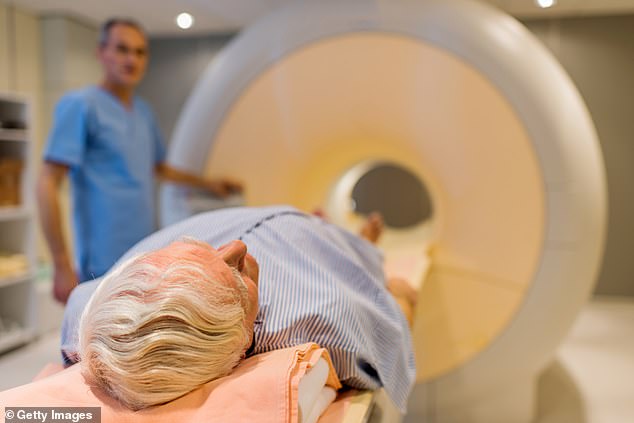Artificial intelligence is better at detecting prostate cancer than hospital doctors, according to a groundbreaking study.
Developed by experts, the computer system was trained and then tested on more than 10,000 prostate MRI exams in patients.
The use of AI resulted in half as many false positives and reduced the number of clinically insignificant cancers by a fifth compared to radiologists, the research revealed.
Doctors believe it could help reduce overdiagnosis and prevent unnecessary surgeries in the most common cancer among men, which would greatly benefit any future screening programme.
Researchers predict that using AI to help read scans will be crucial to addressing the growing demand for medical imaging around the world.
The computer system was trained and then tested on more than 10,000 prostate MRI exams in patients.

More than 52,000 men are diagnosed with prostate cancer each year on average in the UK, making it the most common cancer in men. Around 12,000 men die each year from this disease, the equivalent of one every 45 minutes.
However, so far there is limited scientific evidence on whether it actually works, which is holding back the large-scale adoption of artificial intelligence systems for prostate cancer diagnosis.
They wanted to test whether cutting-edge AI models, trained using thousands of patient exams, were as good as radiologists at detecting clinically significant prostate cancer using MRI.
In the first study of its kind, an international team developed the technology using 10,207 MRI exams from 9,129 patients in the Netherlands.
This was then tested on a further 1,000 patients to determine whether the men had cancer and, if so, how aggressive it was likely to be.
The technology was pitted against 62 radiologists from 20 countries, each with an average of five to ten years of experience interpreting prostate MRIs.
The diagnoses were then compared to the results using histopathology (analysis of cells under the microscope) and how the patients had fared an average of four to six years later.
It was found to be as effective as radiologists at detecting more serious prostate cancers and gave half as many false positives, which can lead to unnecessary biopsies.
The AI also detected 20 percent fewer cases where the cancer was of such a low level that it was unlikely to cause problems for the patient during their lifetime, according to the paper published in The Lancet Oncology.
Global researchers, including Radboud University Medical Center (Netherlands), conclude: “AI systems, when properly trained and validated for a target population with thousands of patient cases, could potentially support the diagnostic pathway of prostate cancer treatment.
“A clinical trial is needed to determine whether such a system results in improvements in workflow efficiency, equity in healthcare, and patient outcomes.”
It comes as a landmark prostate cancer screening trial is underway in the UK, which is likely to be followed by a national screening programme.
Transform will test the effectiveness of diagnostic techniques, including MRIs, compared to the current standard prostate-specific antigen (PSA) blood test.
Prostate cancer is the most common cancer among men and the second deadliest, responsible for around 12,000 deaths a year.
The earlier it is diagnosed, the better the outcomes, with most men living five years later when diagnosed in its earliest stage, compared to only half at stage four, when it has spread elsewhere.
Late diagnosis is also extremely costly for the NHS, with hormonal treatments for advanced prostate cancer estimated to cost tens of millions each year.
Last year, the European Council agreed on a recommendation that countries should consider the feasibility and effectiveness of prostate cancer screening based on a PSA test followed by MRI.
Prostate Cancer UK is now asking GPs to actively target men who are at higher risk, such as those with a family history of cancer or black men, to see if they want a PSA blood test.
The charity wants other trained health professionals, such as nurse practitioners, to be trained to advise men about the disease and testing options.
Chiara De Biase, Director of Health, Equity and Improvement Services at Prostate Cancer UK, said: “We know that many men do not come forward because they believe they will be invited as part of routine testing, when this is simply not possible.” It isn’t true.
‘The long-term answer is a screening program for all men, and the results of our TRANSFORM trial will tell us the most effective way to do this.
“Until then, we all need to work together to make sure men know their risk and what they can do about it.”


